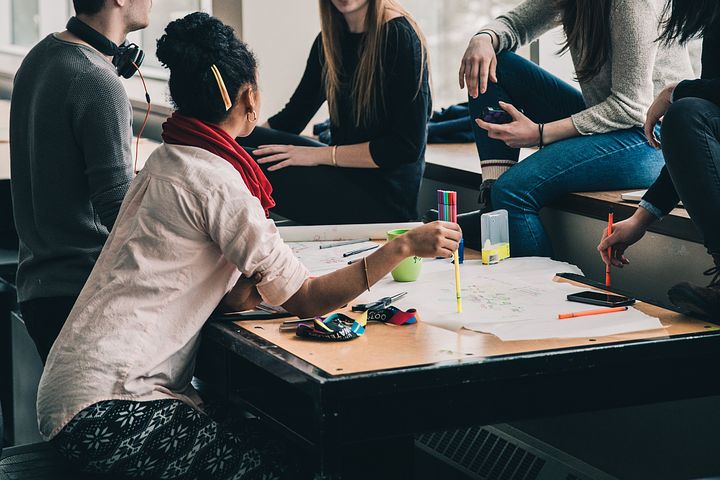
As a researcher my work is about constantly learning new things. Whenever I master something, I move forward to the areas that provide me with new challenges. And something that I have learned in doing this is that learning is much more efficient and much more fun together. Research is not something that one should do alone.
During my PhD studies I worked in a lovely research environment where I had many people around with the same interest in the Contextual Behavioral Science and we all were eager to learn more. We had different project, but because they were all related to the same topic, we could benefit from each other’s work and a lot of good practices for collaboration was created naturally. We worked in a same place, so asking help and pondering things together were easy. We had weekly meetings to recap the process in different projects and to solve actual problems together.
In addition to my research group, I became a member of relatively young Association of Contextual Behavioral Science (ACBS) that connected scientist, clinicians and students from different countries. I appreciated the community’s attitude and practices in openly sharing expertise and aiming to develop the field in collaboration. Yearly conferences provided, not only a great portion of interesting knowledge, but also an important ingredient for all learning – a bunch of inspiration. Having a feeling of belonging to a wider community with the same or similar interest and seeing others’ work has been very important part of my learning experience. It has given a sparkle to the research work that, in some normal workdays, can be dull and boring.
During my postdoc, my collaborators were mainly working in different universities in different countries. Thus, my everyday working environment was not an ideal for learning and development. I can enjoy working alone and get fused to investigating new things on my own, but I got to notice that discussions with other researchers, often in a very unformal manner, are vitally important part of the research work. Often the best ideas are created in an unformal learning situations, such as having hours long lunch discussion with colleagues by sharing ideas and being challenged to think them thoroughly.
Nowadays, I have many different learning networks that I found extremely valuable, including near and distant colleagues, but also my students. Teaching is in many ways effective way to learn which makes it motivating for me. First of all, when I need to teach something for others, I really need make it clear for myself. Second, when students’ experiences, ideas and learning processes becomes shared, I learn a lot from the students and they can learn a lot from each other too. This is something that I would like to develop further and benefit more in my teaching, i.e., how students could learn in more collaborative ways so that it becomes more efficient and more meaningful, so that the learning experience would be shared and the development of collective understanding and development would be in focus. The lessons that I have learned in doing research are good guide in this, such as creating a sense of belonging to a community with shared interest, becoming inspired by others’ ideas and work and having fun in learning together.
Thanks for your blog Essi, I find it resonates with my experience! From my own experience too, finding myself in a community with a shared interest has always been key for learning, and that goes for research as well as for pedagogical thinking. In my case, I was lucky to be asked, early on in my academic career, to develop courses jointly with a colleague who had pedagogical interest and went to a number of pedagogical courses before I did. Until today, I can rely on his feedback and exchange with him about teaching-related ideas, and a lot of this happens through largely informal interactions. What’s more, we are from different departments so we actually created a cross-disciplinary community within the university, first through an informal network interested in social responsibility and sustainability perspectives from different disciplines, and then through a gradually more institutionalized community, which has now reached (with the help of many other researchers) the status of cross-disciplinary research Area of Strength within the University. I mention this process just to share that when a learning community might be lacking in one’s own department, there can be possibilities to develop such community by reaching out to like-minded people in other departments, and, if needed, in other universities too!
Thanks for this. You have managed to formulate this so well. I found a lot of thoughts that I share. I personally enjoy co-teaching a lot. It makes me think and reflect the things that happened “in class” after the session. My co-teacher, who was teaching with me at the time when the pandemic hit Finland was a terrific help for me not only when developing our course, but also in my personal growth. We are teaching again, and next week when our course ends I think we will have a similiar discussion about our online learning experiences that we had in the spring